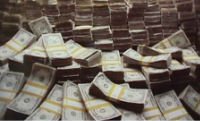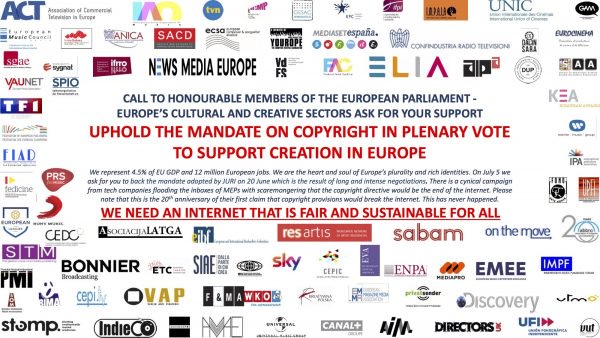
While a considerable number of smaller platforms will still fiercely protest their non-profit status if challenged, in 2018 there can be little doubt that generating revenue is the motivation behind the majority of public sites. The prevalence of ads and affiliate schemes is a testament to that.
Of course, sites don’t always start out this way. Many private torrent trackers, for example, were created with the intention of providing free, no-strings content for all. Some still achieve that today but the rising costs of running a site (including servers for hosting, proxying, seeding etc) can’t be ignored, not least since the rich benefactors of yesterday have mostly moved on.
To this end, most sites these days generate money in a number of visible ways, from ever-present ads and product affiliate schemes to ‘donation’ models that are little more than disguised subscriptions. Others accept donations in the traditional sense, with a begging bowl handed round each time a server bill is due.
But what happens when the ends no longer meet? The users of two formerly ‘free’ sites have been finding out recently. In a pair of monster discussion threads on Reddit (1,2), users of pirate anime site ‘Kissanime’ complain that they’ve been completely banned from the video platform.
Their unforgivable crime? Ad-blocking.
Users say that all they did was visit the site with Adblock Plus or uBlock Origin enabled in their browser and the next thing they were given a ban. We jumped aboard and found ourselves greeted by the notice creating all the fuss.
It’s not as if users weren’t warned though. A notice published on the site’s main page informs members that running any kind of browser addon could mean ejection from video platform.
“Using any extensions/plugins on KissAnime could lead to errors/suspension,” it reads.
Nevertheless, plenty of people appear to have ignored the advice and have suffered the consequences as a result. For their part, the operators of the site seem completely unrepentant.
“There is no way to lift the ban at the moment, if you got banned, please disable those adblockers on kissanime, never turn it on kissanime again and wait. Or you could use other anime sites,” an admin announced on Discord.
The situation is an interesting one. Like most pirate sites, KissAnime has costs that have to be met by those visiting the site. Short of asking for a “donation”, these costs are currently met by advertising revenue. However, many users don’t want to be bombarded by advertising so they block the ads.
This means that all adblocking users become freeloaders and therefore a drain on the site. As far as the site’s health goes, there’s literally no point in them being there so they’re best removed from the community. It’s an ironic situation best appreciated by the anime producers themselves who are also trying to make a living.
That being said, not all people block ads out of malice towards the site. Some users complain about porn ads corrupting their experience, so in response they block them all. Being selective is too laborious, they say.
For the site, a solution could be to remove the surprise porn ads. However, a source who asked to stay anonymous told TF that these sometimes offensive ads can be quite lucrative, hence the desire for them to stay visible.
But while one site decides to kick all of its adblocking users out for being a drain on resources, another has taken an even more radical approach to its making available of other people’s content.
FreeTutorials.us is a site that offers premium tutorials and other learning materials without permission from copyright holders. As its name suggests, it originally offered content for free.
Earlier this year, FreeTutorials.us made the headlines after being targeted in the courts by online learning platform Udemy, which took exception to its content appearing on the site for nothing.
In a subsequent interview with TF, the pirate site’s operator explained the motivation behind FreeTutorials (FTU) and affiliated site FreeCoursesOnline (FCO).
“We have been through that phase of life when we didn’t have enough money to buy books and get tuition or even apply for a good course that we always wanted to have, so FTU & FCO are just our vision to provide Free Education For Everyone,” he explained.
While having the ability to learn for free is appreciated by millions the world over, for users of FreeTutorials the dream is now over. Last month and with little fanfare, free download buttons were replaced with something else entirely.
There’s little doubt that the prices being charged are much lower than those officially available, something which probably prompted FreeTutorials to change its tagline to the current ‘Affordable Education For Everyone’.
On this basis alone they’re likely to retain visitors. Indeed, a look at their traffic stats for the past few weeks suggests that visitor numbers have remained stable. If this translates to sales, no one should expect ‘free tutorials’ to return. Like free content, few people are turning down ‘free’ money.
FreeTutorials’ email addresses bounce so we can’t ask them why they shifted over to the pay model. However, one doesn’t have to be Sherlock Holmes to deduce that in one way or another, a desire to make money is at the root of the change. Whether that’s simply to pay for hosting costs or to help cover living expenses is unknown and probably irrelevant.
The important thing is that whether it’s an enforced advertising model, donations, or a flat-out desire to charge money, pirate sites face similar commercial difficulties to those experienced by their legal counterparts. Everything costs money and needs to be paid for, and if the books don’t balance, that’s the end of the show.
Despite their differences, perhaps they’re quite similar after all.
Source: TF, for the latest info on copyright, file-sharing, torrent sites and more. We also have VPN reviews, discounts, offers and coupons.




 I also need your help, I need some
I also need your help, I need some 



 American satellite and broadcast provider Dish Network is continuing its legal battles against alleged pirate streaming services.
American satellite and broadcast provider Dish Network is continuing its legal battles against alleged pirate streaming services. 


 When the European Commission
When the European Commission 


 Streaming set-top boxes have been selling like hot cakes over the past several years.
Streaming set-top boxes have been selling like hot cakes over the past several years. 